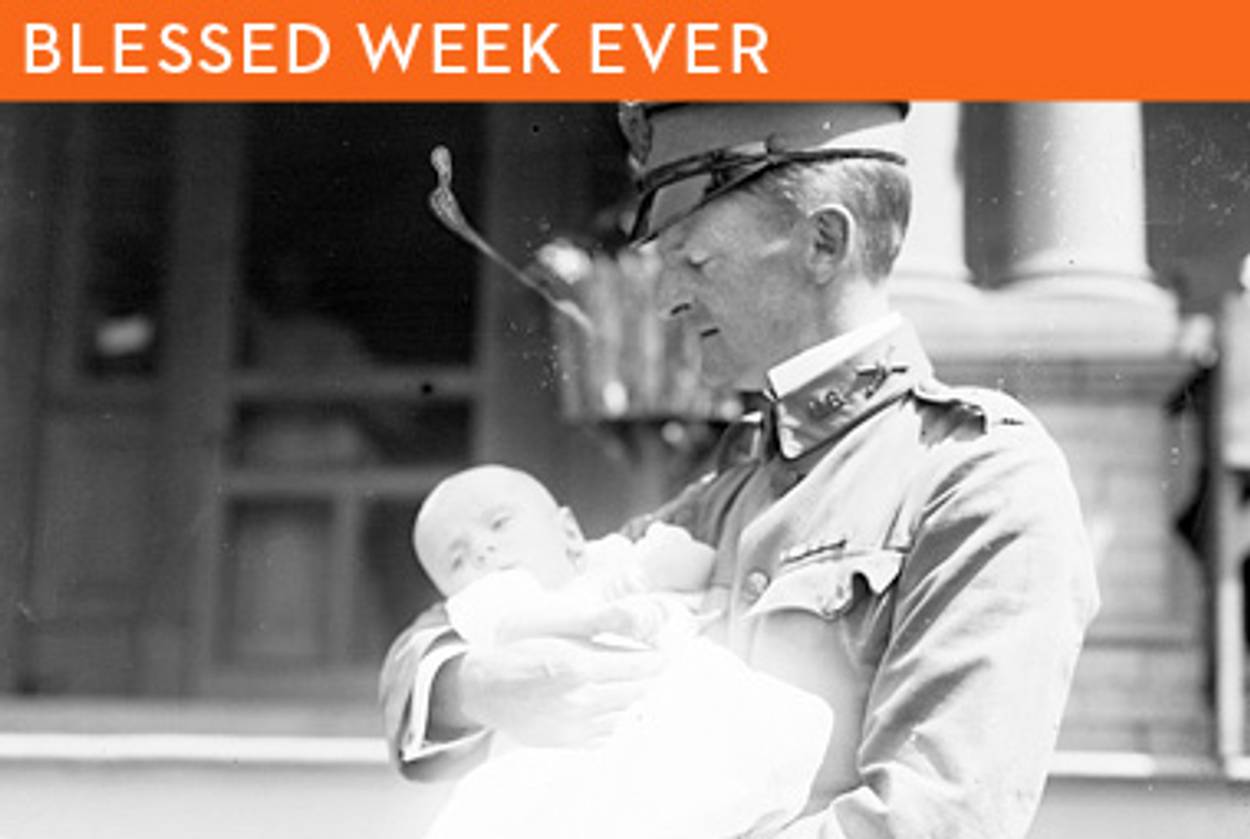Heavenly Fatherhood
A haftorah of child-rearing and redemption




Most of the things I’ve done in my life, I could imagine myself doing. Before receiving command of a small unit in the Israeli army, I reflected on my responsibilities and concluded that I was ready for whatever lay in store. The night before teaching a class for the first time as a newly minted professor, I had a drink and felt confident I would succeed. I’m the sort of chap (Cocksure? Foolhardy? Dumb?) who leaps into things happily and without fear. It’s men like me who are the first to the tops of mountains or the bottoms of oceans. It’s also men like me who die trying. But for all my bravado, there is one role I cannot even begin to imagine playing: that of father.
The very concept strikes me as audacious beyond measure. I am acutely aware that parents, with their every word and every deed, shape much of their child’s essence; how anyone could live with the burden of such a responsibility is beyond me. Thinking of children, I can’t help but wonder if they, too, would be doomed from birth to wrestle with the same flaws that claw at me, and I know that even if they succeed in transcending their genetic baggage and go on to live happy lives, I would not easily forgive myself for having condemned them to the possibility of being like me.
It’s a logic, I believe, that should apply regardless of one’s opinion of oneself: Even those who are enamored with the men or women they’ve become must surely acknowledge that procreation is driven by the desire to advance the species and that, in order to do that, we must ponder our own failures so that we could produce children who are better than us. Such is the cruel but sustaining logic of human evolution.
Anyone who’s read this far could be forgiven for thinking that, on the subject of child-rearing, I am an incurable pessimist. The opposite is true—I look forward to having children one day, and I believe that fatherhood would be a magical and immensely rewarding journey. But it would be a journey unlike any other I’ve ever taken in one crucial way: When it arrives, I’ll know for sure that I’m not ready.
This week’s haftorah, however, brings with it a spot of good news: Neither is God.
Describing the relationship between the heavenly father and his favorite children, Isaiah has this to say: “In all their affliction he was afflicted, and the angel of his presence saved them: in his love and in his pity he redeemed them; and he bore them, and carried them all the days of old.”
It’s a beautiful sentiment, but one that, at first reading, makes little sense. Why would God himself be afflicted as his people suffer? As the Supreme Being, couldn’t he, arguably, save his chosen ones the suffering, relieve them of their burdens, shower them with lovingkindness? If we keep with the parenting metaphor for a minute, isn’t God the father of all sugar daddies, an omnipotent benefactor whose wealth could buy his children everything, happiness and love included?
He is, of course, just that. But like every responsible father, he realizes that children who get whatever they want never grow up. With that, he lets us suffer. And how: Having appointed us as his holy nation, he expects us to endeavor in his spirit, even though he knows such an enterprise will stir nothing but anger and animosity the world over.
But we don’t mind. We know that there’s no other way. A heavenly father who is nothing but mercy is not the sort of dad we’d like to have; such a dad dissolves with the first gust of the winds of war and is easily buried under the mounds of doubt and rage that are left in the aftermath of every major disaster. If God is so merciful, it’s only natural to scream in a time of need, where was he when the worst happened?
The Hebrew God has a ready answer. He was right here. He witnessed the horror. It pained him much, as much as any father would hurt to see his children tormented. And he did nothing to stop it, because if he had, he would be doing nothing more than toying with the universe, depriving us of the glories and terrors of free will and rampant consequences.
Instead, he opts for a vision that puts father and children together on the path, informed by each other’s actions, pained by each other’s downfalls, and comforted by each other’s triumphs. And that is a vision of parenthood I can get behind.
Liel Leibovitz is a senior writer for Tablet Magazine and a host of the Unorthodox podcast.
Liel Leibovitz is editor-at-large for Tablet Magazine and a host of its weekly culture podcast Unorthodox and daily Talmud podcast Take One. He is the editor of Zionism: The Tablet Guide.